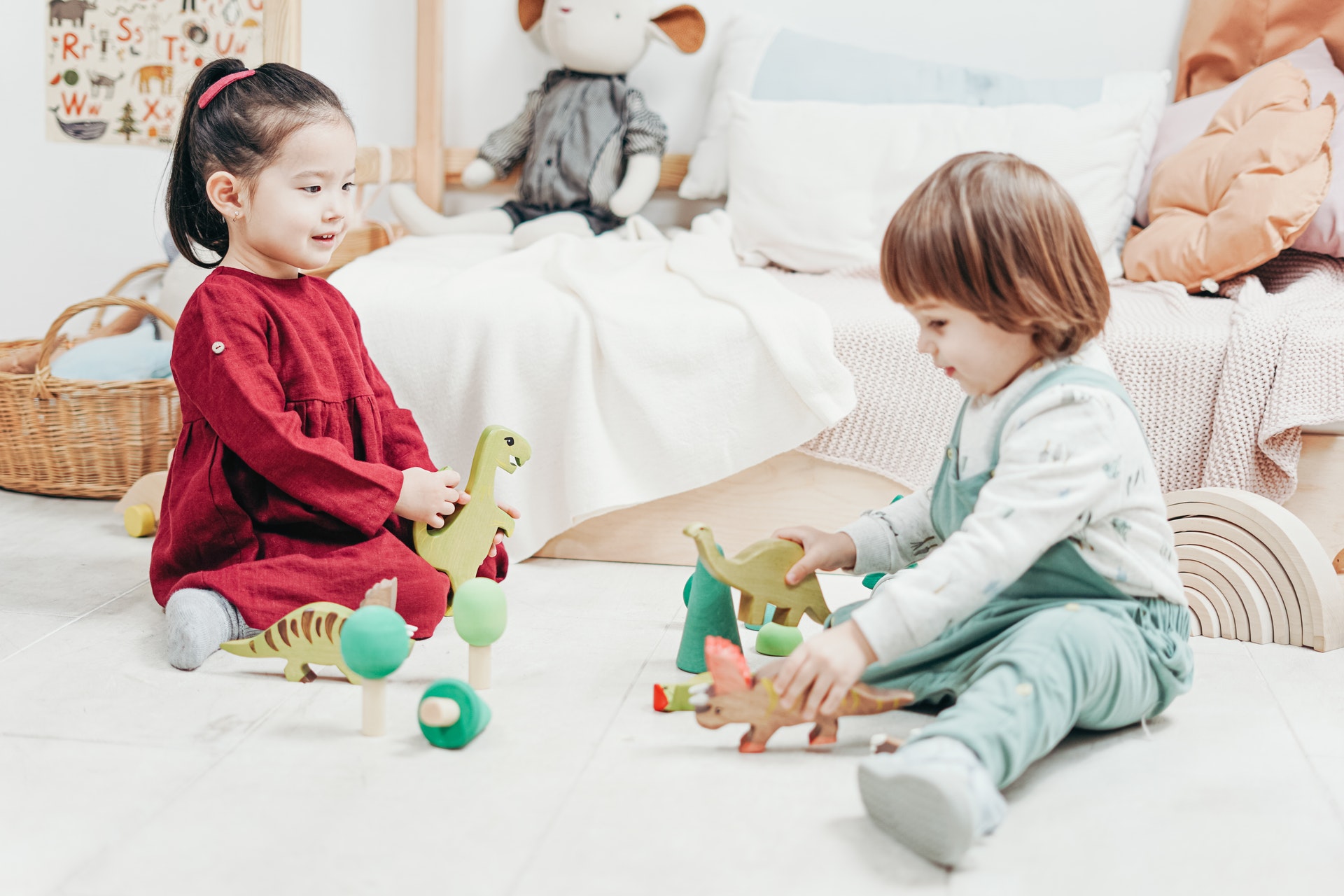Many people see “learning” and “playing” as two separate things for children—but the truth of the matter is that they’re one and the same. Children do some of their most important learning while they play and experience enriched playtime.
Through enriched play, children learn the concepts of cause and effect, how to solve problems, the passage of time, how to get along with others, how to entertain themselves, and more about how the world works in general. But even though they are learning all of these important concepts—play is still fun! (Or at least it should be.) These are concepts that children absorb subconsciously as they move throughout their play.
Children learn by doing, which is another reason that play is so important. Playing allows children to act out what’s going on inside their minds and learn from it in a way that makes sense to them. By bringing the great, big world down to size, it’s more easily digestible. Learning through enriched play is also a great way for children to come to terms with subjects that might not be the easiest for them to understand at face value, like grief and even divorce. Truly, children can (and do) learn almost everything through their own versions of enriched playtime.
 What Is Enriched Playtime?
What Is Enriched Playtime?
Enriched playtime is pretend play, play that imitates routine life behaviors, and symbolic play. Some examples of this type of play include
- reenacting activities that children observe in their daily routines;
- engaging in imaginative play from stories that they learn in books, movies, and TV shows;
- retelling/reenacting stories that they hear through word of mouth;
- singing and acting out songs that they hear.
The Benefits of Enriched Play
We’ve compiled a list of five benefits that contribute to play that is meaningful and enriching for a child. Keep reading to learn how such play can help prime your child’s brain for important development.
It grows decision-making skills.
When children participate in enriched play, they make their own choices and decisions and have all the freedom in the world to do so. They can also witness the connection between their choices and the outcome that occurs after those choices are made.
As a parent, the materials and toys that you provide for your child can aid this skill even further. Instead of gravitating toward toys with only one use, we recommend choosing more open-ended toys that can be studied and tested by children, then used in many different ways.
Some examples of these types of toys are wooden blocks, ribbon, and other reusable resources—once the imagination is activated, these materials can become anything that your child decides they are by using their creative thinking abilities.
It encourages self-motivation.
Children have the instinct to play because of their desire to understand the world around them and how it works. Play is just as instinctive as needing food, shelter, or sleep. The motivation within a child to keep playing allows them to regulate their feelings and desires so this can happen.
Enriched play also helps a child learn self-control. When they’re playing with others, instead of satisfying their own needs first, they will learn to think of their friends and factor them into the equation.
It immerses them in what they’re doing.
When a child is truly engaged in their enriched play, they are no longer caught up in their surroundings, what time it is, or what comes next. In this situation, there’s no risk, and they are safe to experiment, explore, and investigate anything that might come to their minds. Being fully immersed in play allows their mind to travel somewhere completely creative while still keeping their physical body rooted in reality.
It encourages spontaneity.
In many cases, there’s no script for playtime—it’s all unplanned. Even when a specific part of play is planned out, a friend could change their mind or a toy might not function in the way it’s supposed to. This gets children used to the concept of the unknown and the unpredictable and helps them remain flexible for things that happen out of the blue.
It’s fun!
Play can always be counted on to have an emotional response—happiness. Without this emotion, children are just going through the motions. But enriched play creates happiness and fulfillment within a child, which carries over to their enjoyment of the everyday and what they can create in their lives.
Your Child’s Playtime
Play is one of the most important ways for children to learn—if not the MOST important. If you’d like to learn more about how to help your child get the most out of the way they play, or learn more about play-based learning in general, give Austin Children’s Academy a call at (512) 960-1514.





















